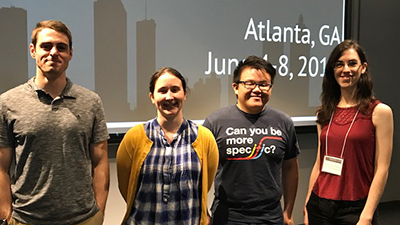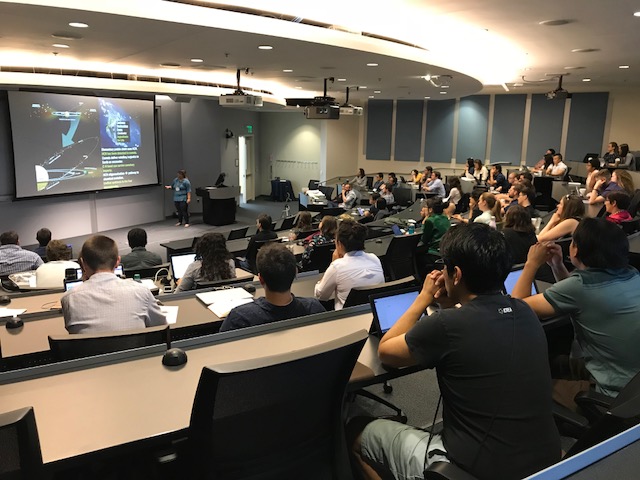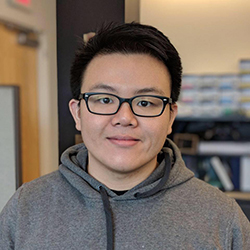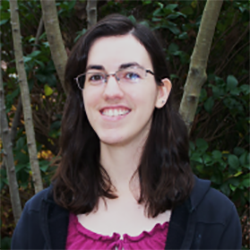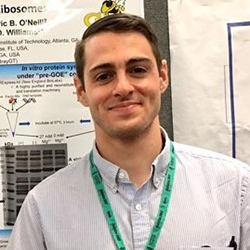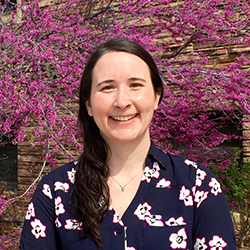Georgia Tech Ph.D. students and postdocs host AbGradCon 2018 this week. AbGradCon stands for Astrobiology Graduate Conference. The popular gathering provides a unique setting for attendees to share research, collaborate, and network.
The meeting is for and by early-career scientists addressing the broad questions of astrobiology: How did life start? Where else does life exist? How could humans search for life outside Earth?
AbGradCon 2018 brings to the fore Georgia Tech’s standing in astrobiology research and education. Georgia Tech leads in training scientists who will direct space exploration in the 21st century.
Organizers
George Tan chairs the organizing committee. He is a Ph.D. student of Amanda Stockton, in the School of Chemistry and Biochemistry. Working with Tan were more than a dozen other Ph.D. students or postdoctoral researchers.
Organizers expect 96 attendees: 72 from the U.S. and 24 from overseas, Tan says. They come from nine countries: Brazil, Canada, Czech Republic, Germany, India, Japan, Mexico, United Kingdom, and United States.
The program includes an evening for the public, which features Astronaut Lawrence DeLucas.
“We have a big astrobiology community at Tech. This is the perfect opportunity for us to network with students and postdocs with similar interests. I also learned a lot about planning conferences,” says Adriana Lozoya. She is a Ph.D. student of Nicholas Hud, in the School of Chemistry and Biochemistry. Hud is also a member of the Parker H. Petit Institute for Bioengineering and Bioscience (IBB).
“It’s been a great experience getting all the moving parts to work to make this conference exciting and worthwhile for all attendees,” says Marcus Bray. He is a Ph.D. student of Jennifer Glass, in the School of Earth and Atmospheric Sciences. Glass is also an IBB member.
Funding
Major funding for the meeting came from the NASA Astrobiology Institute. Other sponsors are:
- ACS Earth and Space Chemistry
- Earth-Life Science Institute
- Georgia Tech Astrobiology
- Georgia Tech College of Sciences
- Georgia Tech Institute for Electronics and Nanotechnology
- John Templeton Foundation
- Nature Publishing Group
- Simons Foundation
“We can’t thank our sponsors enough,” Tan says. “Their generosity markedly enhanced our ability to prepare the best possible program and accommodate close to a hundred participants.”
“I look forward to the many informal discussions over the week,” says Rebecca Rapf. She is a postdoctoral researcher with Kevin Wilson at Lawrence Berkeley National Lab. “I’m sure they will lead to productive collaborations and long-term friendships with people who will be our peers throughout our careers.”
For More Information Contact
A. Maureen Rouhi, Ph.D.
Director of Communications
College of Sciences

